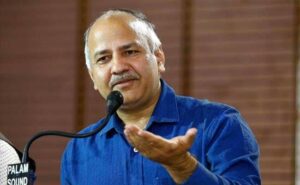From frying pans to foreign drains: How is oil eating into India’s health & wealth
4 min read
K K Jha
India’s health and economic future are deeply intertwined with what we consume—and in what quantities. Today, as the country witnesses a silent crisis of rising obesity and ballooning edible oil imports, the clarion call given by Prime Minister Narendra Modi to reduce edible oil consumption by at least 10 percent could not have come at a more opportune moment.
The popular narrative around hunger in India—often highlighted by our ranking of 105 out of 127 nations in the Global Hunger Index—tends to overshadow another reality: a growing segment of the population is suffering not from undernutrition but from overnutrition. This trend is most evident in our skyrocketing rates of obesity, which the Prime Minister has rightly described as the “root of many diseases.
From kitchen staple to national concern
Edible oil is an essential component of every Indian household. However, what was once consumed in moderation is now overused—leading to harmful consequences. Per capita consumption of edible oil in India has more than doubled in the past few decades and currently stands at around 19 kg per person annually, significantly higher than what is considered nutritionally necessary.
A large part of this demand—nearly 57 percent—is fulfilled through imports. Among these, 59 percent is met by palm oil alone, most of which is refined and of inferior nutritional quality. Palm oil’s affordability has pushed it into every corner of our food supply chain—from packaged snacks and sweets to ready-to-eat meals. But cheap doesn’t mean safe or healthy. High in saturated fats, palm oil is associated with an increase in LDL cholesterol, obesity, cardiovascular diseases, and metabolic disorders.
If we continue this trajectory unchecked, by 2050, India could have as many as 440 million obese citizens. This is not just a health issue—it’s a time bomb for our public healthcare system and workforce productivity.
Reducing consumption: A win-win proposition
The Prime Minister’s call to reduce edible oil consumption is a public health imperative and an economic strategy.
Consider this: if per capita consumption falls by just 10 percent and the goals of the National Edible Oil Mission—to increase domestic production from 114 lakh tonnes in 2022–23 to 203 lakh tonnes by 2030—are met, then India’s import dependence could fall dramatically from 164.7 lakh tonnes to just 60.7 lakh tonnes. That’s a 63 percent reduction in imports, translating into huge savings in foreign exchange and a significant boost to Atmanirbhar Bharat in the edible oil sector.
Furthermore, reducing consumption would ease pressure on public health infrastructure by reducing the incidence of lifestyle diseases, improving the quality of life for millions, and lowering healthcare costs. Healthier citizens are more productive citizens.
A Boost for Indian farmers
This transition also has a profound economic and social upside for our farmers. Currently, low global prices and heavy imports, especially of palm oil, have created an uneven playing field. Indian oilseed farmers—particularly soybean and mustard growers—struggle to secure fair prices. Encouraging local production and reducing imports will revive domestic oilseed cultivation, improve rural incomes, and empower our farming community.
Moreover, India’s traditional oils such as mustard, groundnut, and soybean oil are time-tested and far healthier than many imported alternatives. They contain beneficial unsaturated fats and, when consumed in moderation, support heart health and metabolic wellness.
Time to reassess our palm oil dependency
Given palm oil’s overwhelming share in India’s edible oil imports and its documented health risks, it is time we reassess its role in our dietary ecosystem. While it may have once served as a cost-effective option to meet rising demand, we must now pivot towards health-first policies. This may include reviewing its role in the Edible Oil Mission and promoting alternatives that are both health-friendly and grown domestically.
Public awareness & policy support
The government, industry, civil society, and media must work together to spread awareness about the benefits of reducing edible oil consumption. This includes promoting healthier cooking practices, food labeling norms, public health campaigns, and encouraging the food processing industry to reduce the use of palm oil and explore healthier substitutes.
As past initiatives like Swachh Bharat, Ujjwala Yojana, and COVID-19 vaccination have shown, the people of India respond to well-articulated and purpose-driven appeals from the leadership. We are confident that the Prime Minister’s advice to cut edible oil use will also resonate deeply and lead to a significant shift in behavior.
India stands at a critical crossroads. We can either continue down the path of import dependency and growing health challenges, or we can choose a smarter, healthier, and more self-reliant future. Reducing edible oil consumption is not just a dietary adjustment—it is a national responsibility. Let us embrace it wholeheartedly—for our health, our farmers, our economy, and the generations to come.
The Author is an Indore-based senior Journalist & Commodities expert)







